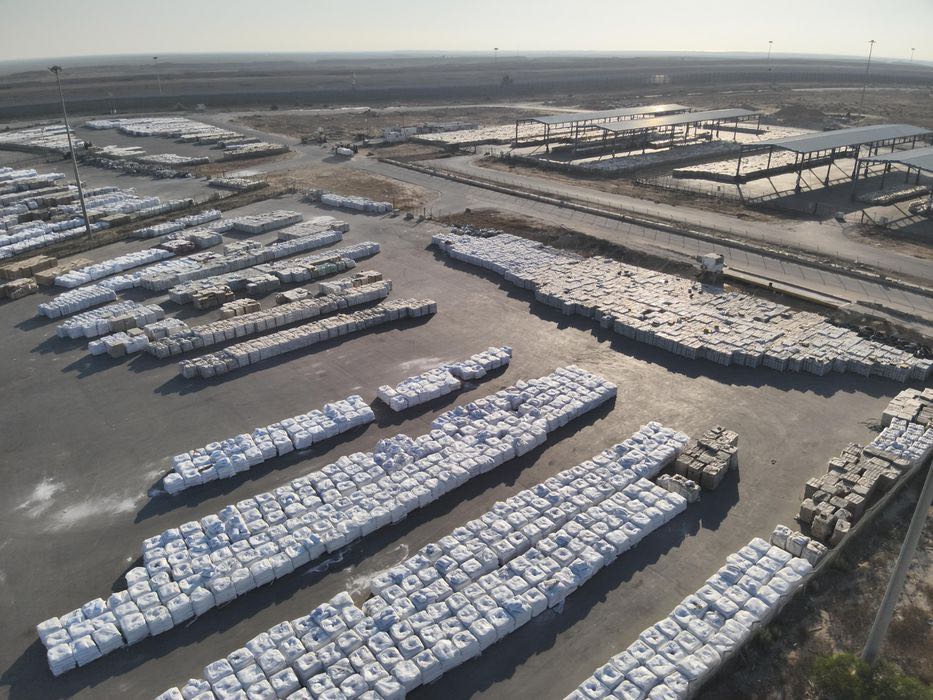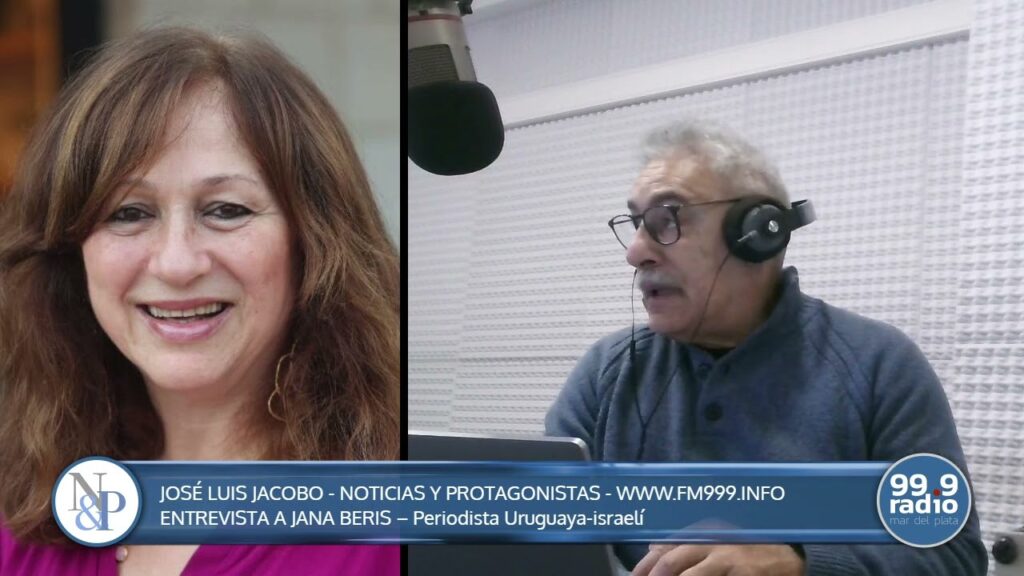Avi Melamed
30 de octubre de 2011
Hace aproximadamente 3 años, Khaled Mashal (también conocido como Abu Walid), el líder de Hamas en Damasco, recibió una llamada telefónica de Omar Suleiman, el jefe del Servicio General de Inteligencia egipcio.
«Tengo una buena noticia, Abu Walid», dijo Suleiman «Israel ha aceptado liberar a mil prisioneros palestinos a cambio de (el soldado israelí que fue secuestrado por Hamas en junio de 2006) Gilad Shalit».
¡Mashal estaba extasiado!
«¡Buenas noticias!» dijo: «Usted tiene luz verde de mi parte para cerrar el trato».
Omar Suleiman, informó a Hosni Mubarak, entonces presidente de Egipto, y Mubarak, a su vez, informó a Bashar al-Assad, presidente de Siria.
Assad se puso furioso.
«¡Mashal no está en condiciones de dar luz verde!» dijo.
Assad tenía razón. Mashal, al igual que el resto de los líderes políticos de Hamas, no tenía ninguna autoridad y no estaba en posición para dar luz verde sobre nada en relación con Gilad Shalit. De hecho, Mashal estaba totalmente despistado sobre el paradero del soldado israelí.
Los únicos que tenían poder sobre la cuestión de Gilad Shalit eran Ahmed al Ja’abari, el comandante de las Brigadas Ezzedeen Al-Qassam – ala militar de Hamas, o los patrocinadores de Hamas, el presidente Assad de Siria y el general iraní Qassem Suleimani, comandante de la fuerza Al Quds (la columna vertebral de la Guardia Revolucionaria iraní) que reporta directamente al líder espiritual y de mayor rango de Irán – Ali Khamenei.
Esta historia es sólo la punta del iceberg, cuando se trata de los factores y cálculos implicados en la historia del soldado israelí secuestrado. En mi artículo anterior titulado «Siria, la Hermandad Musulmana y Gilad Shalit» les di una visión «detrás de la escena» de por qué pensaba que las probabilidades de su liberación estaban aumentando.
En este artículo me gustaría explorar otro aspecto de esta historia. Quiero compartir con ustedes la forma en que el mundo árabe ve el acuerdo de intercambio de prisioneros, después del intercambio de Gilad Shalit por la liberación de 1.027 prisioneros palestinos.
En el corto plazo, Hamas puede estar satisfecho. El acuerdo restauró – temporalmente – la declinante popularidad de Hamas en la calle palestina. Pero aquí, el énfasis está en la palabra «temporalmente». No pasó mucho tiempo antes que aparecieran las primeras voces, en el mundo árabe, criticando tanto al acuerdo como a Hamas.
En los días inmediatamente posteriores al canje – que resultó en la liberación de los primeros 477 prisioneros palestinos – la crítica fue algo suave y tenue. En realidad, nadie quería arruinar la fiesta. Así que los críticos expresaban reconocimiento a Hamas y su esperanza de que no tomara mucho tiempo hasta que todos los prisioneros palestinos, todavía prisioneros en cárceles israelíes, fueran liberados.
Después de los primeros días, sin embargo, las críticas se hicieron menos contenidas.
He aquí algunos ejemplos, que representan el descontento con el acuerdo negociado por Hamas:
Un periodista árabe hizo cálculos. Según sus cálculos, Hamas tendría que «secuestrar a otros siete Shalit y necesitaría llevar a cabo negociaciones durante treinta y cinco años» con el fin de liberar a todos los palestinos que están prisioneros en cárceles israelíes.
Hamas había hecho compromisos públicos, y declaraciones oficiales, que no habría acuerdo sin la liberación de los principales líderes palestinos, que son considerados como «símbolos palestinos», como Marwan Barghouti, el líder de Fatah, o Ahmad Sa’adat, el líder del Frente Palestino para la Liberación de Palestina. Hamas no cumplió su compromiso. Estas personas, y otras figuras simbólicas, permanecen en la cárcel.
Hamas no llega a decidir quién va a ser liberado en la segunda fase del acuerdo – que será decisión de Israel. En otras palabras, más del 50% del número total de palestinos que se supone serán liberados, serán determinados por Israel y sólo por Israel.
Hamas sucumbió a la demanda de Israel de que algunos de los prisioneros que fueran liberados, serían deportados, permanente o temporalmente, a otros países. Uno de los palestinos liberados es Walid Akl, uno de los fundadores de las Brigadas Ezzedeen Al-Qassam. No regresará a la Franja de Gaza. Fue deportado a Turquía.
Hamas acordó que únicamente Israel decidirá quién sería deportado, temporal o permanentemente.
Hamas acordó que Israel decidiría cuánto tiempo, los deportados temporales, tendrían que estar lejos, y bajo qué condiciones se les permitiría regresar a los territorios palestinos.
Al hacer el acuerdo, Hamas perdió su única carta, mientras que Israel tiene muchas cartas para jugar.
Un cínico periodista árabe escribió: «Al aceptar los términos (arriba mencionados), Hamas está creando una nueva generación de refugiados palestinos, de modo que Hamas tendrá una razón para continuar su lucha…»
Algunos críticos fueron, incluso, más explícitos:
Algunos señalan el hecho que a Hamas le gusta presentarse como el liberador de los palestinos. Sin embargo, Hamas no dice ni hace nada por los miles de palestinos que están prisioneros en las muy conocidas cárceles de Siria, aliado y patrocinador de Hamas.
Un escritor kurdo escribió acerca del término kurdo «Fashcariya». Esa palabra describe a un matón de poca monta que aterroriza a su barrio, pero que no es más que un globo, que tarde o temprano terminará en el basurero de la historia. En esa categoría incluye a Saddam Hussein, Muammar Gaddafi, Bashar al Assad y Hamas.
Además de las críticas que, entre los árabes, el acuerdo suscita hacia Hamas, como se describe anteriormente, otro tipo de condena expresada, en la calle árabe, no se centra directamente sobre Hamas.
Es más bien una especie de irritación que refleja un sentimiento de humillación entre los árabes.
Ese sentimiento se manifiesta en los muchos comentarios escritos por periodistas y bloggers árabes que afirman que «Un soldado israelí fue negociado por más de 1.000 palestinos», es decir, un israelí «equivale» a 1000 árabes. Este sentimiento de humillación no es nuevo. También se expresó en anteriores acuerdos de intercambio.
Y, por último, el acuerdo de intercambio de prisioneros, entre Israel y Hamas, pone de manifiesto las diferentes formas en que Israel es retratado en el mundo árabe.
No es sorprendente que algunos árabes vean el precio que Israel pagó por la liberación de Gilad Shalit como un signo de la continuidad del proceso de debilitamiento de la sociedad israelí. Por lo tanto, llegan a la conclusión que Israel es realmente una «débil tela de araña que, inevitablemente, será destruida». El concepto de «Israel como una débil tela de araña que, inevitablemente, será destruida» fue acuñado por Hassan Nasrallah, el líder de Hezbollah en Líbano, tras la retirada de Israel de Líbano en 2000.
Por otra parte, muchos árabes expresan sentimientos de admiración por Israel, debido a su compromiso de traer de vuelta a casa a sus soldados y la voluntad de los ciudadanos israelíes de pagar un doloroso precio para lograr ese objetivo.
Estos sentimientos de admiración suscitan envidia y frustración – totalmente comprensible teniendo en cuenta los acontecimientos actuales en el mundo árabe. Día tras día, impactantes y horrorosas imágenes llegan al mundo árabe. El régimen de Assad masacra a su propio pueblo en Siria; incitados musulmanes masacran a coptos en Egipto; y civiles inocentes – niños, mujeres, hombres y ancianos – son asesinados a diario en Irak, Libia, Somalia, Sudán, Yemen y otros lugares, en todo el mundo árabe. Los derechos humanos son violados constantemente en diferentes partes del mundo árabe y musulmán y la vida parece no tener valor.
Y, al mismo tiempo, los árabes ven la imagen de los principales líderes israelíes – el Presidente, el Primer Ministro, el Ministro de Defensa, el Jefe de Estado Mayor – dando personalmente la bienvenida a un sólo soldado israelí que regresó a casa.
Teniendo en cuenta la caótica realidad que impera en gran parte del mundo árabe y musulmán, no es de extrañar que mucha gente exprese sentimientos de profunda frustración y desesperación, y no me sorprende que, más de una vez, me haya encontrado con bloggers árabes que abiertamente dicen…. «¡Cómo quisiera vivir en Israel!».
**********************************
Avi Melamed es un judío israelí, con fluidez en árabe, Inglés y hebreo, que pasó muchos años en una variedad de cargos públicos y privados de inteligencia, en zonas de habla árabe.
La inmensa mayoría de la gente, en Occidente, no habla árabe. Por lo tanto, su conocimiento de Medio Oriente y el mundo árabe es parcial. Avi, un experto independiente en Asuntos de Medio Oriente, Israel y el mundo árabe, está apasionado por el hecho que es imposible comprender al Medio Oriente sin saber árabe. Por lo tanto, está decidido a ofrecer a su público la oportunidad de adquirir conocimientos, análisis y comprensión de primera mano, con el fin de mejorar su comprensión de esta compleja y fascinante región.
Traducido para porisrael.org por José Blumenfeld
Difusión: www.porisrael.org
By Avi Melamed
About 3 years ago, Khaled Mashal (also known as Abu Walid) the leader of Hamas in
«I have some good news, Abu Walid,» said Suleiman «
Mashal was ecstatic!
«Great news!» he said «You have the green light from me to close the deal.»
Omar Suleiman informed Hosni Mubarak,
Assad was furious.
«Mashal is not in a position to give the green light!» he said.
Assad was right. Mashal, like the rest of Hamas’ political leaders, had no authority and was in no position, to give the green light about anything regarding Gilad Shalit. In fact, Mashal was totally clueless as to the whereabouts of the Israeli soldier.
The only ones who had a say regarding the issue of Gilad Shalit were Ahmed al Ja’abari, the commander of the Ezzedeen Al-Qassam Brigades – Hamas’ military wing, or Hamas’ patrons, President Assad of Syria and the Iranian General Qassem Suleimani, the commander of the Al Quds Force (the backbone of the Iranian Revolutionary Guards) who reports directly to Iran’s spiritual and most senior leader – Ali Khamenei.
This story is only the tip of the iceberg when it comes to the factors and calculations involved in the story of the abducted Israeli soldier. In my previous article entitled «Syria, The Muslim Brotherhood and Gilad Shalit»I gave you a «behind the scenes» glimpse as to why I thought the odds for his release were increasing.
In this article I would like to explore another aspect of this story. I want to share with you how the way Arab world views the prisoners swap deal following the exchange of Gilad Shalit for the release of 1,027 Palestinian prisoners.
In the short run, Hamas can be satisfied. The deal restored – temporarily – Hamas’ declining popularity in the Palestinian street. But, the emphasis here is on the word «temporarily.» It didn’t take long for the first voices in the Arab world criticizing both the deal and Hamas to appear.
In the days immediately following the swap – which resulted in the release of the initial 477 Palestinian prisoners – the criticism was somewhat soft and subdued. No one really wanted to ruin the party. So the critics expressed appreciation to Hamas and voiced their hope that it wouldn’t take long until all of the Palestinian prisoners still imprisoned in Israeli jails would be released.
After the first few days, however, the criticism became less restrained.
Here are some examples representing the discontent with the deal Hamas brokered:
One Arab journalist was doing the math. According to his calculations, Hamas would have to «abduct seven more Shalits and would need to conduct negotiations for thirty-five years» in order to release all the Palestinians who are imprisoned in Israeli jails.
Hamas had made public commitments and official statements that there would be no deal without the release of major Palestinian leaders that are considered to be «Palestinian symbols» like Marwan Barghouti, the Fatah leader, or Ahmad Sa’adat, the leader of the Palestinian Front for the Liberation of Palestine. Hamas did not keep its commitment. These people, and other symbolic figures, remain in jail.
Hamas does not get to decide who will be released in the second phase of the deal – that will be
Hamas succumbed to
Hamas agreed that
Hamas agreed that
By making the deal, Hamas lost its only card while
One cynical Arab journalist wrote: «By accepting the (above) terms, Hamas is creating a new generation of Palestinian refugees so that Hamas will have a reason to continue its fight…»
Some critics were even more outspoken:
Some point to the fact that Hamas likes to portray itself as the liberator of Palestinians. Yet, Hamas says nothing and does nothing about the thousands of Palestinians who are imprisoned in the notorious jails of
A Kurdish writer wrote about the Kurdish term «Fashcariya.» That word describes a small-time thug that terrorizes his neighborhood, yet he is nothing more than a hot air balloon, that sooner or later ends up in the garbage can of history. In that category he includes Saddam Hussein, Muammar Gaddafi, Bashar al-Assad and Hamas.
In addition to the criticism the deal evokes among Arabs towards Hamas, as represented above, another kind of condemnation voiced in the Arab street is not focusing directly on Hamas.
It is rather a kind of irritation that reflects a sense of humiliation among Arabs.
That feeling is manifested in the many commentaries written by Arab journalists and bloggers who argue that «One Israeli soldier was traded for more than 1000 Palestinians» i.e. one Israeli «equals» 1000 Arabs. This sense of humiliation is not new. It was also expressed in previous swap deals.
And finally, the prisoners swap deal between
Not surprisingly, some Arabs view the price that
On the other hand, many Arabs express feelings of admiration for
These feelings of admiration evoke envy and frustration – totally understandable given the current events in the Arab world. Day after day shocking and horrifying pictures are streaming in from the Arab world. The Assad regime butchers its own people in Syria; incited Muslims butcher Copts in Egypt; and innocent civilians – children, women, men, and the elderly – are killed on a daily basis in Iraq, Libya, Somalia, Sudan, Yemen and other places throughout the Arab world. Human rights are endlessly violated in different parts of the Muslim and Arab world and life seems to have no value.
And at the same time, Arabs watch the picture of Israeli senior leaders – the President, the Prime Minister, the Minister of Defense, the Chief of Staff – personally welcome a single Israeli soldier who came back home.
Given the chaotic reality that rules large parts of the Muslim and Arab world, it is no wonder that many people express feelings of deep frustration and despair and it does not surprise me that more than once I have come across Arab bloggers who openly say…..«How I wish I lived in





















Debes estar conectado para publicar un comentario. Oprime aqui para conectarte.
¿Aún no te has registrado? Regístrate ahora para poder comentar.